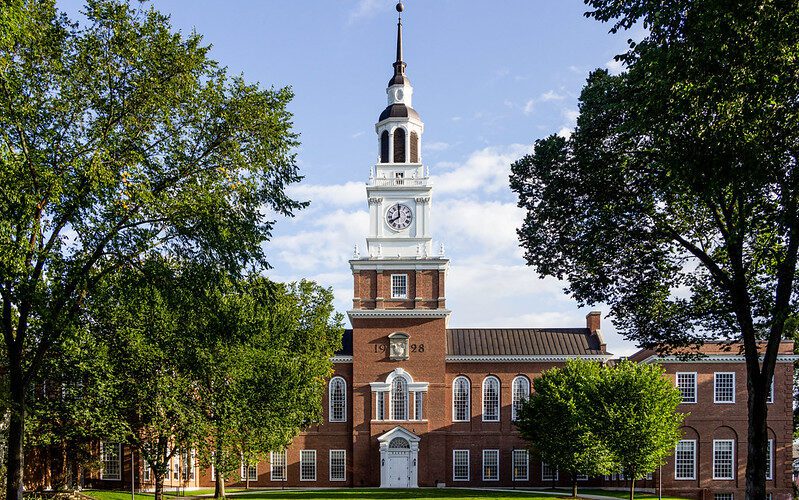Sign up here to receive The Yappie’s weekly briefing on Asian American + Pacific Islander politics and support our work by making a donation.
As some colleges bring back pre-pandemic standardized testing requirements for applications, racial equity experts warn that it could negatively impact low-income and under-resourced students who already face additional barriers to applying for college following last year’s Supreme Court decision, which spelled the end of race-conscious admissions policies nationwide.
What’s happening: Dartmouth College’s decision to once again require standardized test scores could spur other colleges and universities to soon follow suit.
- The president of Dartmouth, Sian Beilock, said test scores can be “helpful in finding students we might otherwise miss” and that Dartmouth considers applicants’ environments and resources when looking at test scores.
- “We’re looking for the kids who are excelling in their environment. We know society is unequal,” Beilock told the New York Times’ David Leonhardt. “Kids that are excelling in their environment, we think, are a good bet to excel at Dartmouth and out in the world.”
Yes, but: While some schools may have a holistic approach to admissions, the decision to reimplement standardized testing requirements could hurt Southeast Asian, Native Hawaiian, and Pacific Islander students applying to college. Data that groups AAPIs under one umbrella can mask the socioeconomic and historical barriers different AAPI ethnic groups face.
- An analysis of the 2022 admission rates for the University of California schools found that the admission rate for NHPI students (62%) was almost 20 percentage points lower than that for Asian Americans overall (78%). Filipino students, Native Hawaiians, Samoans, Guamanians, and Fijians were also underrepresented in admission rates compared to their population sizes in California.
Why this happens: “Standardized tests like the SAT capture and magnify racial segregation and inequalities in K-12 education,” Aarti Kohli, executive director of Advancing Justice-Asian Law Caucus (ALC), said in a statement ahead of the Supreme Court ruling that overturned affirmative action last year. “There is also racial bias in how the tests are developed, in access to test prep, and even in the test-taking experience.”
- “The result is that Black, Latinx, Indigenous, Southeast Asian, Pacific Islander, and Native Hawaiian students often score lower on standardized tests than white students. And that gap is widening,” Kohli said.
Fallout continues: The Supreme Court ended affirmative action in June 2023, repealing a longstanding policy that aimed to make college admissions more equitable for students of color nationwide, including Southeast Asian, Pacific Islander, Indigenous, Black, and Latino students.
- In the wake of this decision, the reimplementation of standardized testing requirements could further exacerbate existing barriers to higher education for Southeast Asian, Pacific Islander, and low-income AAPIs, community advocates say.
- “To say that admissions, or this aspect of admissions, is the only structural barrier that our communities face is also false because it's also SATs and other standardized tests that are used as markers or ways to access post-secondary education,” Empower Pacific Islander Communities Executive Director Estella Owoimaha-Church told The Yappie in June last year.
This story appeared as “The Big Story” in The Yappie’s Feb. 21, 2024 newsletter.
Editor’s note: A previous version of this article incorrectly referenced the Dobbs decision that overturned abortion rights in 2022 instead of the Supreme Court’s affirmative action ruling involving Students for Fair Admissions.
The Yappie is your must-read briefing on AAPI power, politics, and influence, fiscally sponsored by the Asian American Journalists Association. Make a donation, subscribe, and follow us on Twitter (@theyappie). Send tips and feedback to [email protected].









